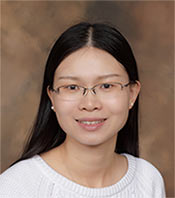- Our Story
- Publications & Resources
- Publications & Resources
- Publications
- IEEE Signal Processing Magazine
- IEEE Journal of Selected Topics in Signal Processing
- IEEE Signal Processing Letters
- IEEE Transactions on Computational Imaging
- IEEE Transactions on Image Processing
- IEEE Transactions on Information Forensics and Security
- IEEE Transactions on Multimedia
- IEEE Transactions on Signal and Information Processing over Networks
- IEEE Transactions on Signal Processing
- IEEE TCI
- IEEE TSIPN
- Data & Challenges
- Submit Manuscript
- Guidelines
- Information for Authors
- Special Issue Deadlines
- Overview Articles
- Top Accessed Articles
- SPS Newsletter
- SigPort
- SPS Resource Center
- Publications FAQ
- Blog
- News
- Dataset Papers
- Conferences & Events
- Community & Involvement
- Professional Development
- For Volunteers
- Information for Authors-OJSP
-
Home
Waveforms for Computing Over the Air: A groundbreaking approach that redefines data aggregation
Conferences Events IEEE Signal Processing Magazine IEEE SPL Article IEEE TIFS Article IEEE TMM Article IEEE TSP Article Jobs in Signal Processing Lectures Machine Learning Seasonal Schools Signal Processing News SPM Article SPS Distinguished Lectures SPS Newsletter Article SPS Webinar SPS Webinars SPS Webinar Series Webinar webinars -
Our Story
What is Signal Processing?

The technology we use, and even rely on, in our everyday lives –computers, radios, video, cell phones – is enabled by signal processing. Learn More » -
Publications & Resources
-
SPS Resources
- Signal Processing Magazine The premier publication of the society.
- SPS Newsletter Monthly updates in Signal Processing
- SPS Resource Center Online library of tutorials, lectures, and presentations.
- SigPort Online repository for reports, papers, and more.
- SPS Feed The latest news, events, and more from the world of Signal Processing.
-
SPS Resources
-
Conferences & Events
-
Community & Involvement
-
Membership
- Join SPS The IEEE Signal Processing Magazine, Conference, Discounts, Awards, Collaborations, and more!
- Chapter Locator Find your local chapter and connect with fellow industry professionals, academics and students
- Women in Signal Processing Networking and engagement opportunities for women across signal processing disciplines
- Students Scholarships, conference discounts, travel grants, SP Cup, VIP Cup, 5-MICC
- Young Professionals Career development opportunities, networking
- Get Involved
-
Technical Committees
- Applied Signal Processing Systems
- Audio and Acoustic Signal Processing
- Bio Imaging and Signal Processing
- Computational Imaging
- Image Video and Multidimensional Signal Processing
- Information Forensics and Security
- Machine Learning for Signal Processing
- Multimedia Signal Processing
- Sensor Array and Multichannel
- Signal Processing for Communication and Networking
- Signal Processing Theory and Methods
- Speech and Language Processing
- Technical Working Groups
- More TC Resources
-
Membership
-
Professional Development
-
Professional Development
- Signal Processing Mentorship Academy (SigMA) Program
- Micro Mentoring Experience Program (MiME)
- Distinguished Lecturer Program
- Distinguished Lecturers
- Distinguished Lecturer Nominations
- Past Lecturers
- Distinguished Industry Speaker Program
- Distinguished Industry Speakers
- Distinguished Industry Speaker Nominations
- Industry Resources
- IEEE Training Materials
- Jobs in Signal Processing: IEEE Job Site
-
Career Resources
- SPS Education Program Educational content in signal processing and related fields.
- Distinguished Lecturer Program Chapters have access to educators and authors in the fields of Signal Processing
- Job Opportunities Signal Processing and Technical Committee specific job opportunities
- Job Submission Form Employers may submit opportunities in the area of Signal Processing.
-
Professional Development
-
For Volunteers
-
For Board & Committee Members
- Board Agenda/Minutes* Agendas, minutes and supporting documentation for Board and Committee Members
- SPS Directory* Directory of volunteers, society and division directory for Board and Committee Members.
- Membership Development Reports* Insight into the Society’s month-over-month and year-over-year growths and declines for Board and Committee Members
-
For Board & Committee Members
Popular Pages
Today's:
- Information for Authors
- IEEE Transactions on Image Processing
- IEEE Transactions on Information Forensics and Security
- IEEE Transactions on Multimedia
- IEEE Journal of Selected Topics in Signal Processing
- (ICASSP 2026) 2026 IEEE International Conference on Acoustics, Speech, and Signal Processing
- Call for Papers for ICASSP 2026 Now Open!
- (ASRU 2025) 2025 IEEE Automatic Speech Recognition and Understanding Workshop
- Guidelines
- Submit a Manuscript
- IEEE Signal Processing Letters
- Information for Authors-SPL
- (ISBI 2026) 2026 IEEE 23rd International Symposium on Biomedical Imaging
- (ICME 2026) 2026 IEEE International Conference on Multimedia and Expo
- Governance Documents
All time:
- Information for Authors
- Submit a Manuscript
- IEEE Transactions on Image Processing
- IEEE Transactions on Information Forensics and Security
- IEEE Transactions on Multimedia
- IEEE Transactions on Audio, Speech and Language Processing
- IEEE Signal Processing Letters
- IEEE Transactions on Signal Processing
- Conferences & Events
- IEEE Journal of Selected Topics in Signal Processing
- Information for Authors-SPL
- Conference Call for Papers
- Signal Processing 101
- IEEE Signal Processing Magazine
- Guidelines
Last viewed:
- Tao Zhang (Starkey Hearing Technologies, USA)
- Deep Learning for Camera Autofocus
- 2025 Asia Pacific Signal and Information Processing Association Annual Summit and Conference (APSIPA ASC)
- Athina P. Petropulu
- (CAI 2026) IEEE Conference on Artificial Intelligence 2026
- IEEE JSTSP Special Series on Artificial Intelligence for Smart Agriculture
- Chapter Resources
- Challenges and Data Collections
- MMSP TC Home
- Technical Liaison Committee/Editorial Board
- Young Professionals
- Information for Authors
- (MMSP 2025) 2025 IEEE 26th International Workshop on Multimedia Signal Processing
- Signal Processing Cup
- Upcoming Conferences - June 2010
Industry Leaders in Signal Processing and Machine Learning: Dr. Yang Lei
You are here
Newsletter Menu
Newsletter Categories
Top Reasons to Join SPS Today!
1. IEEE Signal Processing Magazine
2. Signal Processing Digital Library*
3. Inside Signal Processing Newsletter
4. SPS Resource Center
5. Career advancement & recognition
6. Discounts on conferences and publications
7. Professional networking
8. Communities for students, young professionals, and women
9. Volunteer opportunities
10. Coming soon! PDH/CEU credits
Click here to learn more.
News and Resources for Members of the IEEE Signal Processing Society
Industry Leaders in Signal Processing and Machine Learning: Dr. Yang Lei
Member Highlight
Dr. Yang Lei, Principal Research Engineer,HP Inc.
Dr. Yang Lei is a Principal Research Engineer and Tech Lead at HP, leading the efforts of developing computer vision solutions for computing products. Her work has been applied to various domains, including video conferencing, life science, digital manufacturing, education, etc. Dr. Lei is the author of 22 patent applications and has published and presented more than 16 articles in the field of computer vision and image processing. She is the winner of the 2021 Eaton Award of Design Excellence. Her work on detecting circulating tumor cells won the HP Reinventer Award, the highest award recognizing innovations at HP. She received her BS degree from Sichuan University and PhD from Purdue University, both in Electrical and Computer Engineering.
Dr. Lei is an IEEE Senior Member and active volunteer in the community. She currently sits in the IEEE Women in Signal Processing Committee, and is the Chair of the Grade Elevation, Nomination, and Awards Subcommittee. Before that, she was the Chair of IEEE Signal Processing Society (SPS), Santa Clara Valley (SCV) chapter in Silicon Valley, one of the largest and most active SPS chapters.
We approached Dr. Lei to learn more:
1. Q. Why did you become a principal research engineer?
Two career decisions lead me to where I am today. The first one is going into the industry. When I first started my Ph.D. study at Purdue University, I wanted to become a professor. To me, professors are knowledgeable, they do cool things, and they give back to the society by nurturing the next generations. I still believe in these and have deep respect for people who choose that career. It is an internship that changed my trajectory. For one summer, I worked as an intern in a R&D team at HP. At the end of the summer, the team launched a disruptive product. Everyone who worked on it signed their names on a piece of that product, including me. It’s such a fulfilling moment, watching something you built in people’s hands. That motivated me to choose the industry after graduation. I’m fortunate to have the opportunity of joining HP Labs as a research scientist.
The second decision is to leave HP Labs and join the product team. I spent 8 years at HP Labs, and it was fantastic, working on cutting edge technologies, with world-class talented researchers. There are always new things to learn and new ideas to explore. I think it has the best of the academic and industry. About a year ago, I got an opportunity to move to a product team. I decided to take it. It’s not an easy decision because the work environment is completely different. I have to make new connections and catch up on the work in the new team. These cost time in my career. For me, it’s worth it because I always remembered that fulfillment from the internship experience, and the new team offers possibilities that match my career aspirations. That’s how I got here today.
2. Q. How does your work affect society?
I use technology to make people’s life better and easier. During my career, I had the opportunity to apply computer vision to various domains.
One example, separate circulating tumor cells (CTCs) from patient's blood sample is a type of liquid biopsy test to find cancer at an early stage, plan treatment and monitor if cancer has come back. Our team at HP Labs developed a solution that can not only separate CTCs but also automatically count and classify all cells in the patient’s blood sample using AI and computer vision. This data provides therapeutic insights to the doctors about the effectiveness of the patient’s treatment plan. It is less invasive and offers more information, with lower cost than traditional biopsy. This will make cancer tests more affordable and accessible for patients.
3. Q. What challenges have you had to face to get to where you are today?
I would say the biggest challenge is to get my voice heard. The reasons behind it are three folds. First, I’m an introvert and a good listener in nature. When I speak, I want to make sure I’m adding value. Also, I grew up in a culture that values doing over talking. In the US, expressing yourself and talking about your work is equally important as the work itself, if not more important. At last, as a woman, a minority in the table, it gets more challenging.
What worked for me is to get motivated of being heard. It’s not just about expressing myself. I have good ideas and the team will benefit from hearing them.
4. Q. What advice would you give to scientists/engineers in signal processing?
I encourage you all to get involved in society activities, and volunteer if you can. For me it’s been a very rewarding experience. It feels good to give back to the community. In the meantime, I get to meet new people, learn and practice leadership skills, and found role models and mentors. It’s also a good differentiation for me, because not everyone has the experience.
5. Q. Is there anything else you would like to add?
I want to share a few things I learned from my mentors. Try to expand your network beyond your immediate team. Interact with different people will give you different perspectives. Also don’t put yourself in a box. If you feel stuck or do not see a path forward, make sure you’re not putting imagined constrains on yourself.
Thank you for the opportunity to share. I hope everyone who sees this interview has a fruitful and fulfilling career!
Open Calls
Society News
Publications News
Technical Committee News
Member Highlights
SPS Social Media
- IEEE SPS Facebook Page https://www.facebook.com/ieeeSPS
- IEEE SPS X Page https://x.com/IEEEsps
- IEEE SPS Instagram Page https://www.instagram.com/ieeesps/?hl=en
- IEEE SPS LinkedIn Page https://www.linkedin.com/company/ieeesps/
- IEEE SPS YouTube Channel https://www.youtube.com/ieeeSPS
Home | Sitemap | Contact | Accessibility | Nondiscrimination Policy | IEEE Ethics Reporting | IEEE Privacy Policy | Terms | Feedback
© Copyright 2025 IEEE - All rights reserved. Use of this website signifies your agreement to the IEEE Terms and Conditions.
A public charity, IEEE is the world's largest technical professional organization dedicated to advancing technology for the benefit of humanity.










